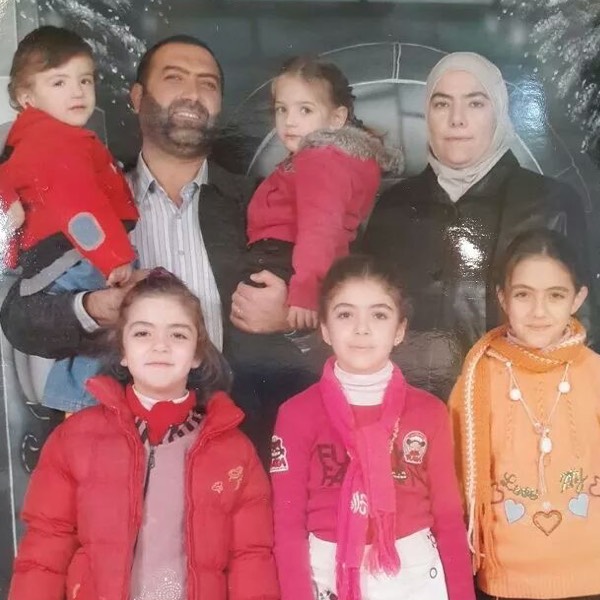RANIA AL-ABBASI AND HER SIX CHILDREN
RANIA AL-ABBASI AND HER SIX CHILDREN

On 9 March 2013 members of the Military Intelligence arrived at the home of dentist Rania al-Abbasi, her husband Abdul Rahman Yasin and their six children, Dima, Entisar, Najah, Alaa, Ahmed and Layan. On the security forces’ first visit to the home, which is located in the Damascus suburb of Mashroua Dummer, they arrested Abdul Rahman.
On 9 March 2013 members of the Military Intelligence arrived at the home of dentist Rania al-Abbasi, her husband Abdul Rahman Yasin and their six children, Dima, Entisar, Najah, Alaa, Ahmed and Layan. On the security forces’ first visit to the home, which is located in the Damascus suburb of Mashroua Dummer, they arrested Abdul Rahman. The same security forces came back the next day and looted money, jewellery, the family cars, and the paperwork for their properties and Rania’s clinic. The following day, they returned again and arrested Rania, the six children, and Rania’s secretary. At the time of their arrest, Dima, Entisar, Najah, Alaa, Ahmed and Layan were respectively 14, 13, 11, eight, six and two years old.
The entire family has not been heard of since that day, and the reason for their arrest is still unknown. However, family members believe Rania and her husband may have been targeted because they had provided humanitarian assistance to people in need. The Syrian authorities have not provided any information to their family nor other bodies, such as the UN Working Group on Enforced or Involuntary Disappearances.
Unofficial information sought by the family remains inconclusive, though there are rumours that Rania may have been held at Military Intelligence Branches 215 and 284 and that she is in poor health. She was not known to have had any health concerns prior to her arrest. Rania’s sister, Naila, told Amnesty International: Rania and the whole family had visas to leave the country whenever they wanted, but when the uprising started, she did not want to leave. She thought she and her family were safe because they had not participated in any political activities or belonged to any opposition party.
A close relative describes how she has been affected by the family’s enforced disappearance:
I cannot sleep at night. My thoughts do not leave me: is she ok or not? Are the children hungry? Are they calm? Or are they screaming and crying? I have these thoughts the whole night.







